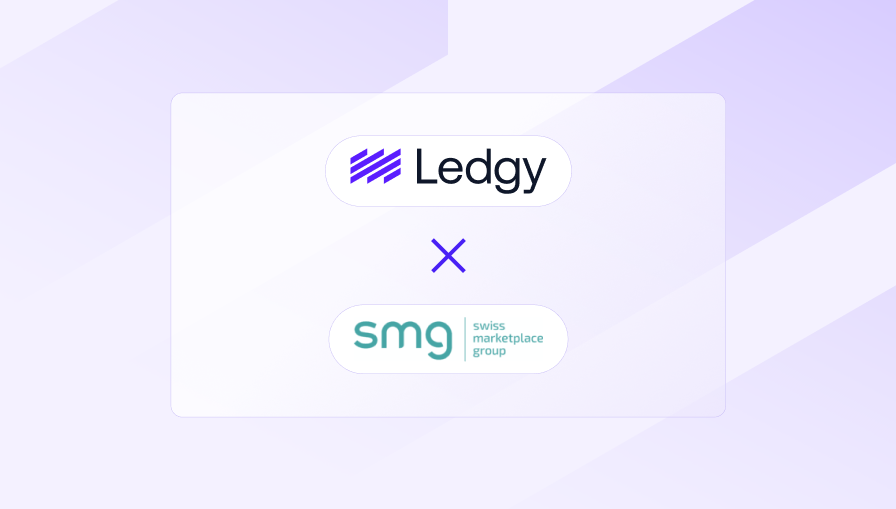Gearset keeps their data accurate as they scale with Ledgy
“We completely automated the generation of about 200 grants on the initial launch of the LTIP. It worked flawlessly in terms of creating the documents, sending them out for signatures and tracking it all in the platform.”







About Gearset
Founded in 2015, Gearset is a SaaS DevOps platform for Salesforce. With a mission to make Salesforce DevOps accessible to every team, they are focused on deeply understanding their users and the job they are trying to achieve, and building elegant technical solutions that can ultimately make them more successful.
About Jason Mann
Jason Mann is COO at Gearset. He joined as part of the early founding team in the summer of 2015. His key responsibilities include overseeing key areas such as finance, legal, compliance and IT. He is also involved in managing Gearset’s equity schemes, including the launch of a company-wide Long Term Incentive Plan (LTIP) to all UK and US-based employees.
Accuracy is a non-negotiable
{{quote-1}}
When Jason joined Gearset, they were running their equity on spreadsheets, which were very manual but worked for the size they had at the time. As they were planning to roll out a wider all-company equity scheme, they knew a more robust tool was needed, with accuracy as the most important aspect. “Although our previous processes were not automated, we did have complete confidence in the accuracy of the data, which was critical for us. A new tool that looked pretty but that didn’t give us complete faith in its accuracy would be a downgrade.” Jason says.
With clear goals revolving around accuracy, scalability and visibility for employees, Jason and his team started their search for equity management software. “When we went out to the market we discarded a lot of providers because they were only US-focused and didn’t have UK-specific features, particularly regarding the tax system and Companies House reporting requirements. It came down to Ledgy and another provider” he says.
Initially, Gearset ended up choosing the other UK provider and started the onboarding process with them but were not satisfied. “Although we initially chose the other provider, we hit a ton of challenges around the onboarding and implementation quite quickly” Jason says. “The UX wasn’t as smooth as we would have liked, they couldn’t correctly model our cap table and there were some issues around the data accuracy. It knocked our confidence to the point where we started to lose faith that we could use this to replace our previous processes and trust it entirely. So we went back, reviewed our choice and decided to switch to Ledgy” says Jason.
Night and day
{{quote-2}}
Jason and his team decided to switch to Ledgy because they felt more assurance in the capabilities of the Ledgy product, as well as the support from the Ledgy team. “The real difference was Ledgy’s level of product knowledge and understanding of our use case to make sure it was correctly modeled in the software” Jason says. “We were then a lot more comfortable and confident in the tool and the support we were going to get from Ledgy.”
When they started the implementation and onboarding process, the gap between Ledgy and the other provider only grew bigger. “It was night and day in terms of the level of support and the ease of the data input. We gave our complete history and cap table to Ledgy and they took it and shaped it into the platform within a couple of days. The implementation was done in under 3 weeks from the first call to being ready to launch” he says. “With the other tool, it was several months of back and forth and constant tweaking and issues to no success. It was much smoother with Ledgy. Essentially, we had the same spreadsheet, we gave it to the other platform for onboarding and it didn’t work. We gave it to Ledgy, and it did work” Jason says.
Less effort for more people
{{quote-3}}
After choosing Ledgy, Gearset was able to launch the new LTIP to employees shortly after onboarding. “We completely automated the generation of about 200 grants on the initial launch of the LTIP. It worked flawlessly in terms of creating the documents, sending them out for signatures, and tracking it all in Ledgy” says Jason. This level of automation has been helpful throughout their time using Ledgy. “Now we can basically just hit a button and Ledgy does all the work. It means we can run the plans with the existing team for the whole company instead of for just a dozen people. We’re managing up to 300 employees and their grants now and it just works with less effort than it was before” he continues.
Ledgy has played an instrumental part in making Gearset’s new LTIP roll-out a success. “I don’t think we would have been able to launch our company-wide equity scheme without Ledgy” says Jason. And it’s even had an unexpected impact on investors. “There’s been a knock-on effect for our investors as well because they can get the information they want a bit more easily and can self-serve as well” he says.
For employees, this has also been a welcome change, starting from the first day they were introduced to Ledgy. “It was 2 minutes between pressing ‘go’ on issuing the first 200 grants and signatures on Ledgy for employees, and for the first person to have signed all their grant paperwork to be fully up and running. That proves how simple it is” says Jason. “From an employee angle, there’s been a lot of positive feedback. It just makes it really easy for them to get their heads around a rather complicated topic, with an understanding of tax and a lot of documents to sign” he continued.
Scaling sustainably
{{quote-4}}
As they continue to scale, Gearset will roll out their LTIP to more employees, and add more complexity while using Ledgy to manage it all. “It took away some of our bottlenecks in managing our company secretary and now we have a platform that allows us to add more people to see what’s going on. Ledgy helps us scale the function and make sure we are doing it in a more sustainable way” Jason says.
Gearset is a high-growth company and they are excited to continue to solidify their aspirations of being the category-defining DevOps tool for the Salesforce ecosystem.
Read more stories about Ledgy’s customers here.




.jpg)




